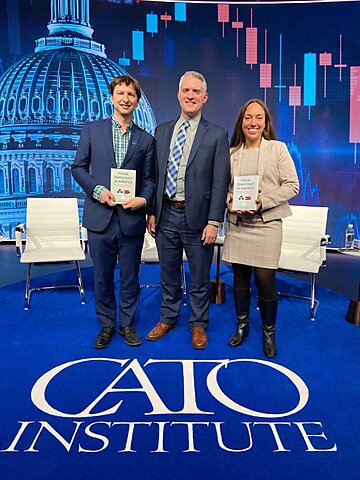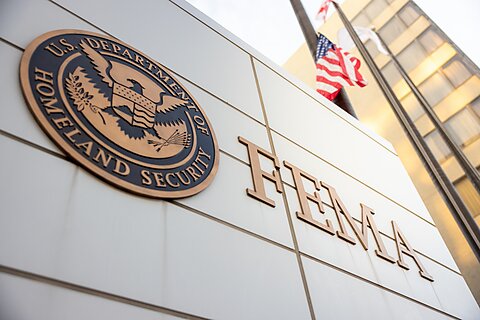Norbert Michel and Ryan Chan-Wei Yesterday, Politico’s “Morning Money” had a great interview with House Financial Services Chair French Hill (R‑AR) discussing, among other upcoming issues, the path forward on crypto and stablecoins. While the stablecoin debate should be settled by now, it’s not behind us yet. Despite the GENIUS Act being passed into law in July and creating the ...
Ian Vásquez Four years after the outbreak of the COVID-19 pandemic, the level of human freedom in the world has remained depressed, according to the Human Freedom Index 2025, published today by the Cato Institute and the Fraser Institute in Canada. The report uses 87 distinct indicators of personal, civil, and economic liberty to measure the level of freedom in ...
Romina Boccia Last week, I hosted a Cato book discussion with Kurt Couchman (Americans for Prosperity), author of Fiscal Democracy in America. We were also joined by Marc Goldwein (Committee for a Responsible Federal Budget). It was one of those rare Washington conversations where political framing falls by the wayside and the real issues emerge clearly: Congress has proven incapable ...
Peter Van Doren The Federal Emergency Management Agency (FEMA) recently denied a request for disaster assistance from Allegany County, Maryland, which voted for Donald Trump by a margin of 40 percentage points. Many assumed there had been a bureaucratic misunderstanding. “They thought he was going to take care of the little person,” said one resident. “Because that’s what he said.” The decision ...
Ian Vásquez A Hong Kong court today convicted Jimmy Lai, the territory’s most prominent champion of democracy and basic human rights, of breaching national security. The sham trial and conviction confirm Hong Kong’s tragic descent into tyranny. Hong Kong was long one of the freest places on earth, and Jimmy Lai, age 78, both symbolizes and cherishes the freedoms that ...
Jon Hoffman This past weekend, the Islamic State (ISIS) killed three Americans in Syria—two US soldiers and one civilian contractor—marking the first US casualties in the country since the fall of Bashar al-Assad in December 2024. President Donald Trump has vowed to respond with “very serious retaliation.” His best course of action is removing the needless and counterproductive US military ...
David J. Bier On December 4, the Department of Justice (DOJ) disseminated a memorandum to all federal prosecutors creating a strategy for arresting and charging individuals supposedly aligned with “Antifa.” The memo requires DOJ to investigate and identify the “most serious, most readily provable” crimes committed by potential targets, including those with “extreme views in favor of mass migration and open ...
Mike Fox When the US Constitution was first drafted in 1787, it didn’t include a specific declaration of individual rights. Many of the Framers argued that the Constitution’s structure of limited government and separation of powers was sufficient to protect citizens. However, Anti-Federalists, who feared a powerful central government, demanded greater assurances. To ensure ratification of the Constitution, Federalists agreed ...
James A. Dorn The distinctive feature of capitalism, properly understood, is freedom: the freedom to own property (i.e., to be a capitalist); the freedom to trade in private markets; and the freedom to express one’s ideas. The primary function of government is to safeguard these fundamental freedoms. Because the principle of nonintervention/freedom is the foundation for capitalism, that system is ...
Justin Logan Negotiations to end the war in Ukraine are bogged down on the same issues that have bogged them down for years: territory and security guarantees. Kyiv is clinging tightly to the demand for US security guarantees. Yesterday, Ukrainian President Volodymyr Zelensky tweeted that it is essential that this document on security guarantees provides concrete answers to what concerns ...












